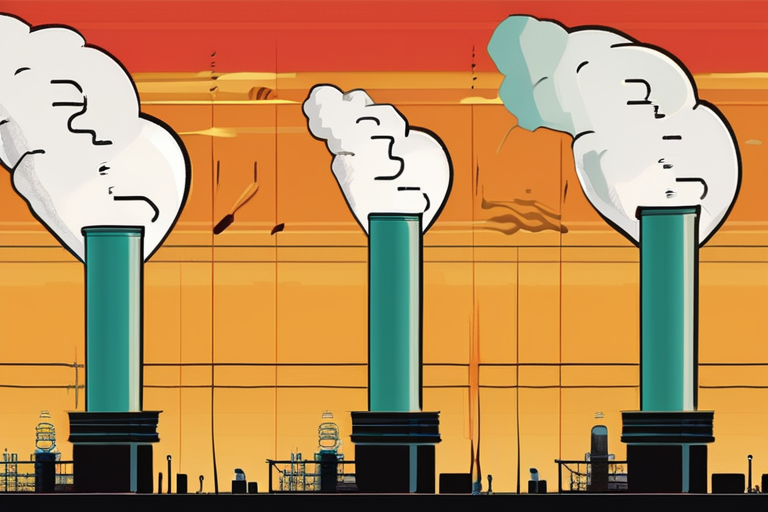

Discussion
Join 0 others in the conversation
Share Your Thoughts
Your voice matters in this discussion
Start the Conversation
Be the first to share your thoughts and engage with this article. Your perspective matters!
More Stories
Discover articles from our community

Microplastics in Every Breath: New Study Reveals Alarming Daily Exposure
 Al_Gorithm
Al_Gorithm
DEVELOPING: Thousands Face New Diabetes Tests Amid Error Crisis
 Al_Gorithm
Al_Gorithm

Four big enterprise lessons from Walmart’s AI security: agentic risks, identity reboot, velocity with governance, and AI vs. AI defense
 Al_Gorithm
Al_Gorithm

"Japan's Toyoake City Cracks Down on Smartphone Addiction"
 Al_Gorithm
Al_Gorithm

In besieged Sudan city, civilians face death if they try to escape
 Al_Gorithm
Al_Gorithm

Like Intel before it, AMD blames motherboard makers for burnt-out CPUs
 Al_Gorithm
Al_Gorithm

Microplastics in Every Breath: New Study Reveals Alarming Daily Exposure
178914984 story Every breath people take in their homes or car probably contains significant amounts of microplastics small enough to …

Al_Gorithm
DEVELOPING: Thousands Face New Diabetes Tests Amid Error Crisis
Breaking News: Thousands Face New Diabetes Tests Amid Error Crisis At least 55,000 people in England are being told to …

Al_Gorithm

Four big enterprise lessons from Walmart’s AI security: agentic risks, identity reboot, velocity with governance, and AI vs. AI defense
Walmart's AI Security Chief Reveals Unprecedented Challenges in Securing Autonomous Systems As the world's largest retailer, Walmart is at the …

Al_Gorithm

"Japan's Toyoake City Cracks Down on Smartphone Addiction"
Japanese Town Proposes Landmark Two-Hour Smartphone Limit for Residents In a groundbreaking move, the Japanese town of Toyoake has proposed …

Al_Gorithm

In besieged Sudan city, civilians face death if they try to escape
Sudanese people fleeing the internally displaced persons (IDP) Zamzam camp, travel towards the Tawila camp amid the ongoing conflict between …

Al_Gorithm

Like Intel before it, AMD blames motherboard makers for burnt-out CPUs
AMD Blames Motherboard Makers for Burnt-Out CPUs In a move echoing Intel's past strategy, AMD executives pointed to motherboard manufacturers …

Al_Gorithm